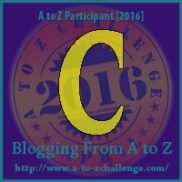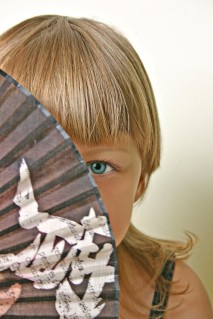 C is for CERTIFICATES
C is for CERTIFICATES
Depending on where you live, and the timeframe in which you’re searching, certificates can be both critical and extremely useful.
Australian certificates are so excellent that almost anyone else’s, except the Scots’, (from my own experience) pale into insignificance. Fully completed, our certificates can launch your family tree on to new levels. The downside is that with so many immigrant families, the person completing the details on a death certificate may never have met their grandparents and get the facts completely incorrect.
This is why marriage certificates can be so helpful – the information comes from each person in the couple. There may be anomalies if they want to fudge their age (if one is older/younger) or if they just put the area they come from (Mary O’Brien from Co Clare, Ireland, God bless her!).
As with all genealogical research you are looking for as many sources as available to provide the information and cross-compare for validity. It’s also why Collateral Research can be so important.

C is for COLLATERAL RESEARCH or FANs
What exactly is Collateral Research?
Alternatively called cluster genealogy or FANs (Friends, Associates or Neighbours) – a concept articulated by American expert Elizabeth Shawn Mills, though used by others without naming it. Collateral research encourages you to look at your ancestor’s siblings in particular to perhaps knock down a research brick wall. Just as we are part of a wider community so were our ancestral families who, as new immigrants, truly relied on friends and neighbours in lieu of traditional family networks.
You can read a couple of my stories about how collateral research has helped my research breach those walls:East Clare Research and Trove does it again.
My good friend Sharn has also recently completed a post which highlights how she used collateral research. It’s called Making Mary Mine.
C is for CENSUS
We’ve all done them, and hopefully we’ve completed them accurately and clearly, as they will ultimately provide a glimpse into the past. Australia has traditionally not retained its census data apart from some very early information, though that is currently changing, which will ultimately help our descendants.
In other countries, census records are an essential part of genealogical research. In the absence of extensive and informative certificates, the family structures spelt out in the census forms, helps to clarify that we have the right person/family and follow their movements over time.
Once again, census forms are subject to some limitations eg the householder may be illiterate and have an accent which the census taker doesn’t understand so you may find anomalies and some creative searching may be required. It’s also intriguing how often someone will age less than 10 years between decennial censuses. Some census records have been lost over the centuries eg the loss and destruction of early Irish records. However, in many other countries the census forms provide the structure of genealogical research.
D is for …I wonder?
D is for directories?
LikeLike
Fair guess, but nope 😉
LikeLike
Excellent post Pauleen and thanks for the mention!
LikeLiked by 1 person
Thanks and you’re welcome of course 🙂
LikeLike
My best find in a certificate came in a relatively recent one. My husband’s mother died when he was very young and his father when he was a young adult, so he had no idea what date they got married. Imagine our surprise when we looked at his parents’ marriage certificate many years after our own wedding, and discovered that not only had we got married on the very same day, but on what would have been their ruby wedding anniversary.
LikeLiked by 1 person
That is really bizarre! What a fortuitous coincidence 🙂
@cassmob
Family History Across The Seas
LikeLike
For years, I did not order certificates (the financial planner in me) but after getting a couple for Brickwalls, I was a convert and now have all my Victorian & Queensland BDM (or BMD!) certificates. I will get the South Australian ones but they cannot be ordered online and are more expensive.
LikeLiked by 1 person
I solved the budgetary issue by asking the family for certs as birthday/Xmas etc etc….plus think how much larger my retirement fund would be if I ordered fewer certs and copied fewer docs 😉
LikeLiked by 1 person
Great post Pauleen. What a terrific idea to ask for certificates as gifts – I’m going to use that!!
I like your term “Collateral Research”. I will be talking about Neighbours also when I get to N.
LikeLiked by 1 person
My girls used to roll their eyes when I’d ask them to pick up certificates in the city on their way home from secondary school 😉
LikeLike
Thank you for the clear explanation of Collateral Research. My major brick wall stems from the failure to trace a birth certificate for my grandmother Alice English, born c.1884, whilst her marriage certificate (which I do have) only gives the name of her father. She was born in England where certificates do not give the mother’s name, unlike in Scotland.
Guessing for D – Deaths, Dictionaries, Diaries or Data Protection?
LikeLiked by 1 person
Don’t you just hate those English certificates Sue?! I have to remind myself how little info they include.
LikeLike
Interesting observation about the downside of your certificates. We need to watch out for lapses in memory and outright lies with just about everything in genealogy. As for D, I guess Deeds, Dowry, and Direct Line.
~Visiting from AtoZ
Wendy at Jollett Etc.
LikeLike
We sure do Wendy. And no one has hit the D jackpot yet 😉
LikeLike
I think they keep good data with the census here but perhaps not so much with birth certificates and such.
Susan Says
LikeLiked by 1 person
It’s all swings and roundabouts with records isn’t it?
LikeLike
What a lot of useful information you have shared. As a beginner in family history, your site will be an excellent resource. Thank you very much. Carolyn @ Pastimes-Passions-Paraphernalia.org
LikeLiked by 1 person
I’m pleased you are finding it helpful 🙂
LikeLike
D is for Dead – like the ancestors.
LikeLiked by 1 person
That’s a bit macabre 😉
LikeLiked by 1 person